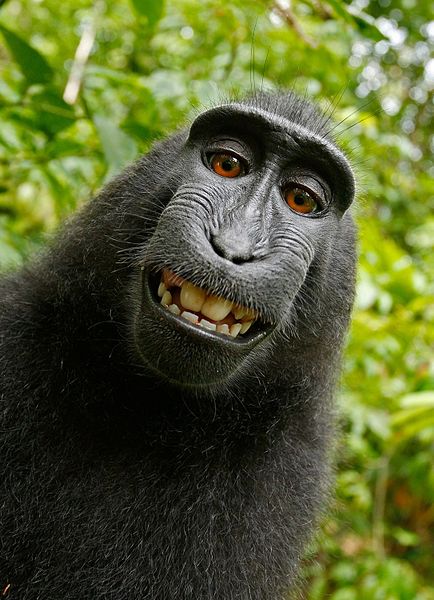In 2011, Naruto, a seven-year-old crested macaque played with a cameraman’s equipment, taking several selfies that have since gone viral. It’s the sort of feel-good animal story that anyone would love.
Unfortunately, the story took a dark turn when PETA filed a lawsuit “on the monkey’s behalf” alleging the photographer was violating the monkey’s copyright in the selfies. Over the next two years, the litigation would nearly bankrupt the photographer.
The case was a high profile test of the rights-of-nature theory—the idea that activists can file lawsuits in the name of animals, trees, rivers, etc. to protect environmental interests. Most efforts have failed, and for good reason.
As I recently explained when an activist group brought a lawsuit in the name of the Colorado River,
Courts have no way of deciding who represents the true interests of an inanimate object. A river has no preferences, at least none that it could express. Instead of the river’s interests, any lawsuit filed in its name would simply promote the preferences of whichever activist group filed it. That would empower the most extreme activists (which would naturally be most prone to object to any use of the river) at the expense of everyone else.
The monkey selfie case is a perfect illustration of this problem. PETA got a lot of attention from the suit, but no success in the courtroom. After the district court dismissed the case and oral argument in the Ninth Circuit went badly, PETA quickly settled with the photographer and asked the court to end the case.
The Court did not accept that invitation. Instead, the Ninth Circuit (perhaps the nation’s most environmental court) castigated PETA’s use of Naruto to advance its own interests.
PETA appears to have failed to live up to the title of “friend.” After seeing the proverbial writing on the wall at oral argument, PETA and Appellees filed a motion asking this court to dismiss Naruto’s appeal and to vacate the district court’s adverse judgment, representing that PETA’s claims against Slater had been settled. . . But now, in the wake of PETA’s proposed dismissal, Naruto is left without an advocate, his supposed “friend” having abandoned Naruto’s substantive claims in what appears to be an effort to prevent the publication of a decision adverse to PETA’s institutional interests. Were he capable of recognizing this abandonment, we wonder whether Naruto might initiate an action for breach of confidential relationship against his (former) next friend, PETA, for its failure to pursue his interests before its own. . . Puzzlingly, while representing to the world that “animals are not ours to eat, wear, experiment on, use for entertainment, or abuse in any other way,” PETA seems to employ Naruto as an unwitting pawn in its ideological goals.
Why does this matter? The rights-of-nature theory, if accepted, would worsen the litigation driven nature of environmental policy. There are now effectively three broad models of environmentalism. First, there’s political environmentalism, which believes that the best way to promote the environment is through political activism for more regulation. Second, there’s free market environmentalism, which empowers conservationists to use markets and property rights to advance their aims without relying on government coercion. And, finally, there’s litigation environmentalism, with the mantra of sue, sue, sue.
Sadly, the last model has become all too common. Vast resources that could otherwise go to providing real conservation are spent each year in lawsuits. These conflicts would be far better resolved through property rights and markets. The monkey selfie case is an important step in turning the tide away from stunt lawsuits.




